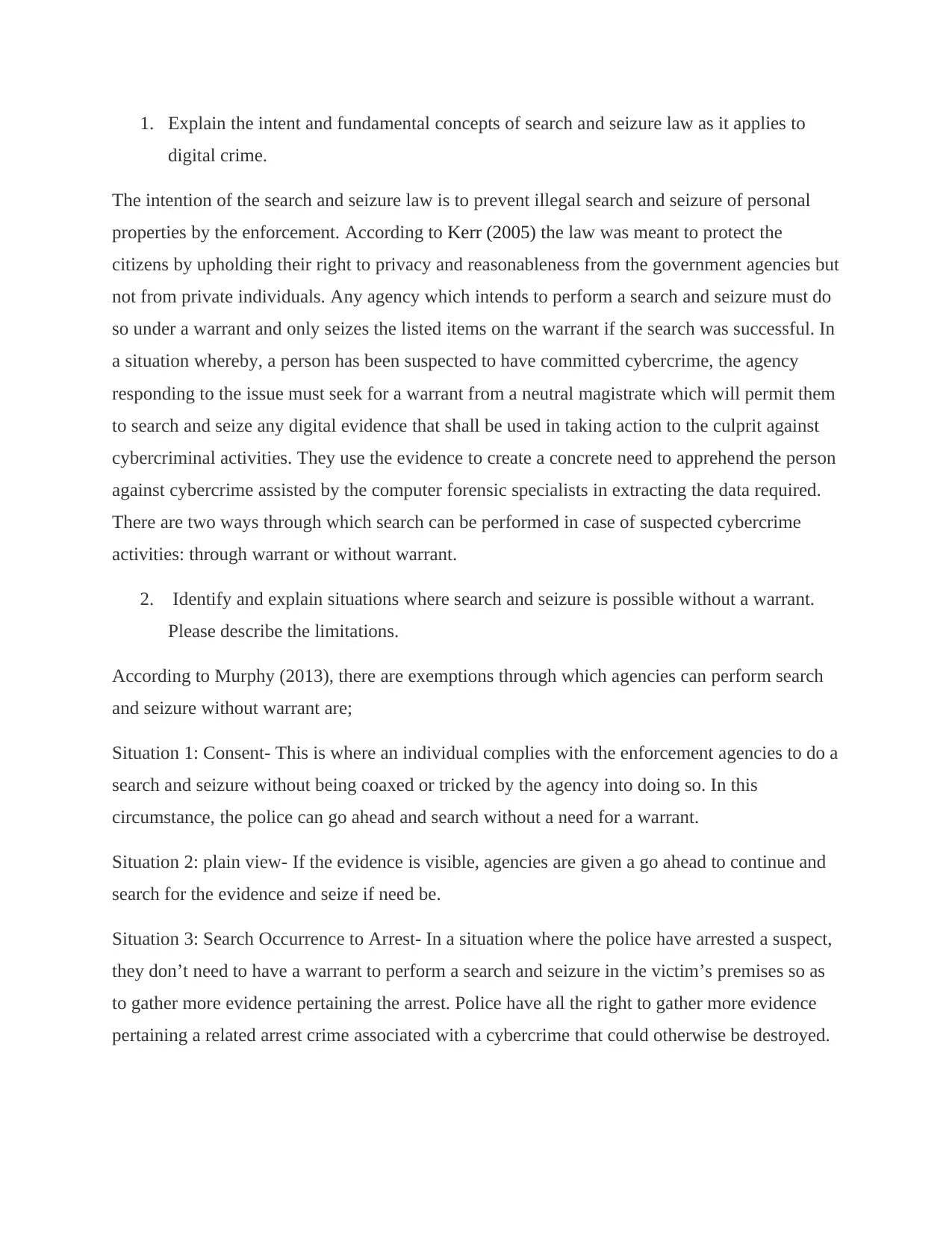Search and Seizure in Digital Crime: Laws, Concepts, and Applications
VerifiedAdded on 2021/06/18
|4
|558
|79
Homework Assignment
AI Summary
This assignment explores the legal concepts surrounding search and seizure in the context of digital crime. It begins by explaining the intent and fundamental principles of search and seizure law, emphasizing the importance of warrants and the protection of individual privacy. The assignment then identifies and explains situations where search and seizure can be performed without a warrant, such as consent, plain view, search incident to arrest, exigent circumstances, and border searches. The document references key legal sources to support its arguments, including the need for a warrant to search for digital evidence in cybercrime investigations, and the limitations of each exception to the warrant requirement. The document highlights the role of computer forensic specialists in digital crime investigations.
1 out of 4











![[object Object]](/_next/static/media/star-bottom.7253800d.svg)